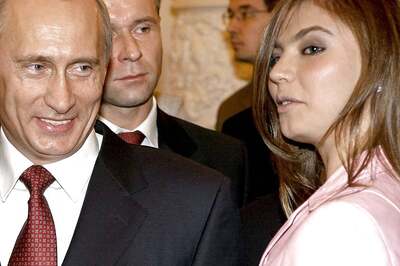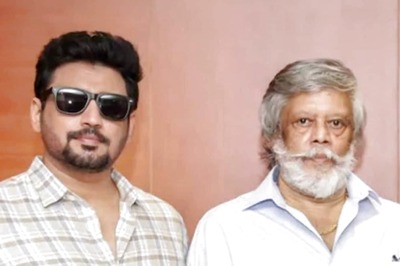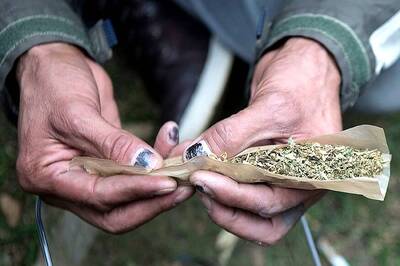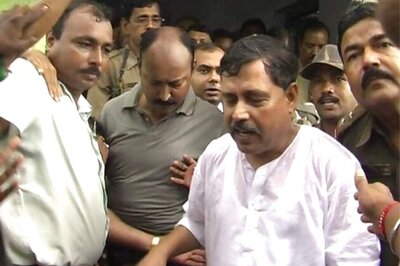
views
Meerut/Lucknow/Mau: It seems the unshakeable bulwark of caste, in this heartland of all heartlands, have cracks. In a never seen before trend class - economic concerns, identities formed around occupation - has dominated caste in Uttar Pradesh as made evidenced by BJP’s stunning sweep of the Assembly polls.
Many factors have converged for this transformation; the mainstreaming of technology; aspirations that coexist with abject hopelessness; an almost permanent state of crisis in agriculture; growing irrelevance of caste-based traditional occupations; and the rise of the educated unemployed.
Perhaps, this move away from set-in-stone caste equations, is what hacks traversing Uttar Pradesh from Ghaziabad to Ghazipur, Bahraich to Banda, tried to capture using pop terminologies like non-Yadav OBC consolidation, fractured Muslim vote, and reverse polarisation.
Mohammed Afzal, far removed from the Twitter timelines of New Delhi media, put it simply. One among the 3.2 million artisans employed in Badohi, 45 km from Varanasi, probably the world’s largest hand-woven carpet hub, Afzal is pained that since he is Muslim everyone assumes which way he'll vote.
“Hum mazdoor hain, roz kuan khodte hain, roz paani peete hain. Hum bunkaar hain yahi sochenge aage koi rozgar aaye. Isliye nahin denge vote ki hum musalman hain. (I am a weaver, I survive on a day to day basis. I'll vote for someone who will give me employment and because of my religious identity),” he says.
Economic needs take precedence over caste and religion in another, nearby, weaver cluster. Lal Bahadur Maurya, working here for several years, claimed this occupation unites all the fellow workers irrespective of caste.
“Kaleen hum sabko jodta hai, har biradri ke log hain yahan, Koeri, Kurmi, Harijan, Yadav, hum Maurya, bhed chaal hai, jahan lehar ghoom gaya hum chale gaye, 2014 mein Bjp ke saath the (Carpets weave us all together, Koeri, Kurmi, Harijan. We are like cattle, all of us work together and go whatever direction the electoral wind is blowing. In 2014 we voted for BJP),” he says.
The dominance of strong class concerns have roots in UP's history. Dr Badri Narayan, JNU professor and biographer of Kanshi Ram, says caste and class have always co-existed in UP.
“Sometimes caste becomes dominant, but there are times when class becomes evident,” he says, adding that occupational identities among the lower classes among the OBCs are emerging stronger in this election in Uttar Pradesh.
However, Sanjay Kumar, Director of Centre for the Study of Developing Societies (CSDS), is skeptical whether a category based on occupation can give rise to a new class.
“It’s just a coincidence that caste and class overlap among the lower OBCs. Lohar, Sonar, Kumhar, Kewat and other non-Yadav OBCs may be voting for BJP but it's not just because of occupational category,” he says, asserting that caste continues to be the great mobiliser.
Kumar says that for OBCs the BJP is a natural transition. Non-Yadav OBCs have long complained that the upper layers among the OBCs have been the biggest beneficiaries of reservation.
The party has been trying to tap into this simmering discontent and, be it demonetisation or surgical strikes, brand Modi and his promises strike a chord. While the note ban showed the rich were no more beyond the reach of the state, surgical strikes showed that India, led by a clean, aggressive prime minister, can reach beyond its border if need be.
Naveen Kumar, like his ancestors, is a barber. This first-time voter in Rasoolabad reserved constituency, where BJP's Nirmala Sankhwar is leading and BSP strategist Naseemuddin Siddiqui’s son Afzal Siddiqui is seeking mandate, is clear about his choice.
"Modi said he will give me job. I am waiting for him to deliver on his promise, and I know he will. If he can carry out an attack on Pakistan, he can do that as well," Kumar says.
Once again, the votes of this new class are not for BJP but for Prime Minister Narendra Modi.
Naveen Kumar is echoed by many other voters found on the way from Mirzapur to Mau in Poorvanchal, even as Akhilesh Yadav’s tall claims of smooth infrastructure crumbled with every pothole on the road.
"Modiji bole hain to hoga, ameer ko hamare saath khada kar diye note bandi se (If Modi has said then it will happen, he made the rich stand with us in queues because of demonetisation)," said one voter.
Though no one person can claim credit for this trend, BJP, under Modi, seems to have tapped into this new class of aspirational poor in the last two years, a segment that’s swelling year after year, election after election.
For first-time voters from the OBC segment looking for livelihood, or for the educated unemployed from the upper castes, Modi is a modern day Robin Hood; the saviour who snatched it all away from the filthy rich on November 8. The voters are confident the riches will be transferred to them in kind before 2019.
Polarisation, then, is not the BJP's only move. Bihar painfully brought home the need for a Plan B to take on regional satraps lording over caste formations, without which Ram or religion alone could not deliver the goods. Class seems to be that counter-move.
Beyond the rhetoric of shamshaan ghats and kabristans, Eid and Diwali, Modi's speeches showed him hard at work, nurturing this nascent class constituency, a bulk of whom are youth. Why else would a politician bring up Harvard University in Maharajganj, an apology of a district with a literacy rate of 63 percent?
When Modi said, "Desh ke kisano ne dikha diya hai, desh ke mazdooron ne dikha diya hai, desh ke imandaron ne dikha diya hai, Harvard se zyada dum hota hai hardwork mein. (The farmers have shown, the labourers have shown, honest people of this country have shown… That hard work is mightier than Harvard,”) and the crowd erupted in applause, he spoke in the context of demonetisation.
The crowd may not have heard of Harvard or Amartya Sen, but it translated to them as a great leader speaking their tongue; that the sweat of their brow was more powerful than a condescending nod from the elite.
Social scientist Manisha Priyam adds another angle to the parachuting of Harvard into Maharajganj. “Modi is referring to the educated unemployed class. It’s an appeal to the Brahmin class, not to the religious pundits, but to a new class that has been through the mofussil colleges but have nowhere to go.” Priyam calls them ‘Savarna Poor', the educated class of youth who complain against reservations.
In 2012, Samajwadi Party had won 85 out of 150 seats in Purvanchal and Akhilesh Yadav had appealed to this class of youth. Post victory, Akhilesh had flooded this region with employment exchanges.
So strong are the aspirations here that Eastern UP is one of the biggest market for the Oxford University Press school text books. Priyam points out that Varanasi’s famous Sunbeam School has 16 branches in this region, with an enrollment of 25,000.
Social scientist Professor Jodhka sees an assertion of this aspirational class who wish to be part of the mobile, urban and educated, middle class. This is also a direct consequence of growing irrelevance of traditional occupations, often associated with caste, and of the steady decline of agriculture.
Jodhka feels that with power structures in villages disintegrating, the economically weak castes often align themselves with classes that become politically available, looking for someone who will articulate their want of upward mobility. For instance, migrant labourers rooted in power structures in villages are united by their jobs in cities.
Not even the textbook elites are immune to this formation of a class identity above all, which may run opposite to their traditional political choice. Brijesh Kumar Gupta, a third generation businessman, strongly objects to any obvious association of his caste identity with his voting preference.
“Baniya shabd khatam kariye, ab koi nahin hai baniya, jo business kar raha hai sab baniya ha, aur sab BJP ke saath nahin hain, Akhilesh Yadav ne expo mart banaya hai. (Stop this blanket usage of the word Baniya. Today, anyone who runs a business is a baniya. And don’t assume all of them are with BJP. Akhilesh, for instance has created an expo mart here),” he says.
The new Indian doesn’t shy away from picking up a broom for swachh bharat, or from bearing temporary pain by standing in queues for their own money. Whether it is this emerging class-consciousness that’s generating an undercurrent for the BJP – as evident from the slew of local polls held after demonetisation that BJP swept – or not, this election in UP surely will break myths.
Pundits say the nature of the beast is such that it can only be overestimated or underestimated. However, as BJP and campaigner-in-chief Narendra Modi walk away with this massive prize, class may have indeed got the upper hand over caste.


















Comments
0 comment